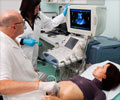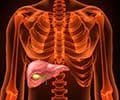Testing and Treatment
Testing for HIV
Testing for HIV can be done by taking a blood sample at the antenatal care and carrying out diagnostic tests like ELISA OR Western blot. The consent of the pregnant woman is required for this test. She will have to wait a while to know if the result of the blood test is positive or negative for the viral antibodies. If the result is negative then the test will have to be repeated after three months for the sake of confirmation.
If the result is positive then the patient will have to decide on how best to carry on with life and what is the best possible move for the baby.
Treatment for AIDS during pregnancy
A pregnant woman who is HIV positive is offered specialist care and is advised to undergo periodic monitoring. Anti-Retroviral drugs are offered is the standard mode of treatment to safeguard the fetus against infection.
These medications helps:
- To check the spread of the virus.
- To keep the viral concentration at very low titer.
- To prevent the spread of the infection to the fetus.
- To keep in check the other infections that is associated with AIDS.
The treatment for the HIV infected pregnant women is akin to that rendered to HIV-infected woman who is not pregnant. Sometimes the drugs may be modified.
Treatment usually starts during the first trimester but in some cases it can be postponed to the second trimester when the fetus is less likely to be affected by drugs. Once these drugs start they should be continued through out pregnancy. Any change in medication or dose should be carried out only with recommendations from the doctor.
Infected pregnant women must be administered the drug Zidovudine (ZDV) at the beginning of the early second trimester and must be continued throughout pregnancy up until delivery of the baby. Research has suggested that new drugs with protease inhibitors activity are far superior and reduce risks to the baby because they combat the virus in a better way.
Women who have not been treated till their labor may be treated with any of the following combinations.
- ZDV alone
- Nevirapine alone
- ZDV and lamivudine in combination
- ZDV and nevirapinein combination
These drugs usually pose low risks, but some of them, like Efavirenz and Hydroxyurea are not recommended during pregnancy due to their ability to cause birth defects.
As far as treatment goes the adage ‘its better late than never’ holds good. Treatments even if started late and in short periods can tremendously benefit the patient and the baby.
During the first three months of pregnancy the anti-HIV medications can increase the risk of birth defects, after this period the risks are not there.
Mothers who are known to be HIV-positive or suspect to infection should generally avoid breast-feeding their babies.
If the father is HIV positive and a couple wishes to bear a child - they should opt for sperm washing and artificial insemination.












